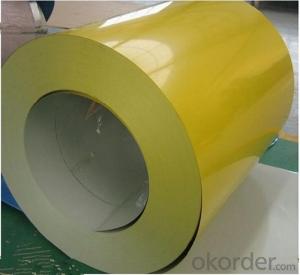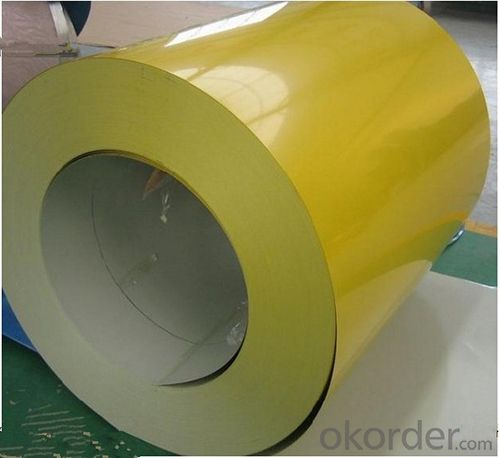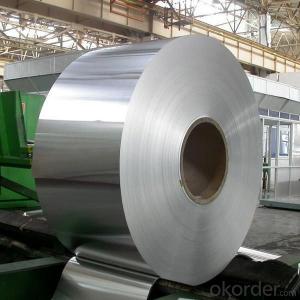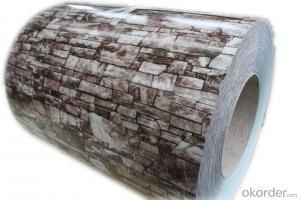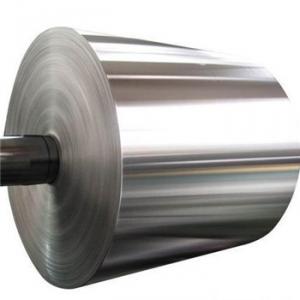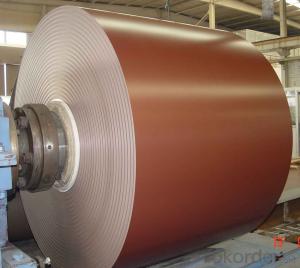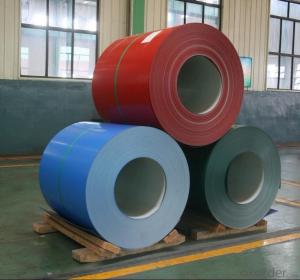Fascia Aluminum Coil for Coated Aluminum Roll in Decoration Materials Production
- Loading Port:
- Shanghai
- Payment Terms:
- TT OR LC
- Min Order Qty:
- 2 m.t.
- Supply Capability:
- 60000 m.t./month
OKorder Service Pledge
OKorder Financial Service
You Might Also Like
Specification
Coated Aluminium Roll For Decoration Materials Production
Alloy | 1050, 1060,1100, 3003 3004 3105 3A21 5005 5052 etc |
Temper | O/H12/H14/H1/H18/H32/H34/H36/H38//H111/H112/H116/H321/T6/T651/T3/T351 etc |
Thickness | 0.1mm to 6mm |
Width | 20mm to 3300mm |
Coil weight | 100kgs to 6 tons depends on actual requirement |
Core material | Aluminum or paper |
Coil inner diameter | 75mm, 150mm, 200mm, 300mm, 405mm, 505mm or as required |
Appplication | construction, roofing, decoration, lamping etc |
Package | eye to wall or eye to the wall for aluminum coil with wood pallet (wooded case also available) |
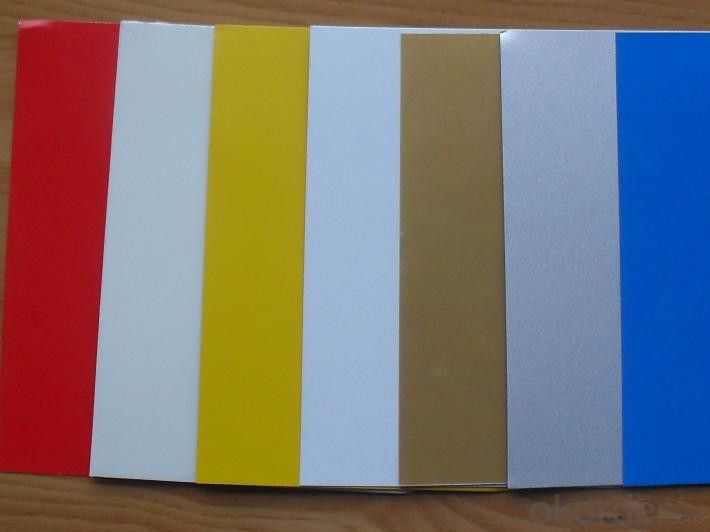
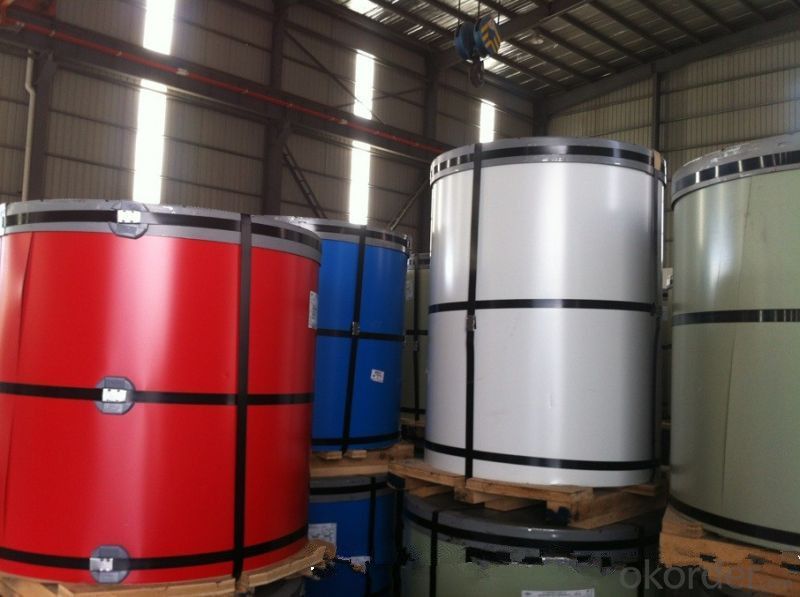
3) Glass curtain wall frame
4) Interior decoration
5) Elevator decoration
6) Signs, nameplate, bags making.
7) Automobile parts material
8) Office and Household appliances: HVAC equipments
9) The consumer electronics: mobile phones, digital cameras, MP3 .etc.
Coating varieties
Polyester Coatings (PE)
PE (polyester) coatings exhibit an excellent combination of hardness, flexibility, flow, appearance, and superior resistance to dirt retention in indoor and outdoor applications. These coatings are highly resistant to abrasion, metal marking, staining, and marring, and require minimal maintenance. Glazetech uses polyester paints which provide excellent colour and gloss retention properties.
Polyvinylidene Fluoride Coatings (PVDF)
PVDF (polyvinylidene fluoride) is a chemical resistant thick film barrier coating commonly used in architectural applications where both excellent appearance and substrate protection must be maintained over a long period of time. This coating is unaffected by most chemicals and solvents and has excellent wear and abrasion resistance. PVDF also has a high dielectric strength, excellent resistance to weathering and the ability to self extinguish.
FAQ
--Q: Do you provide free samples?
--A: Yes, free samples will be sent to you on freight at destination.
--Q: Can I get your latest products catalogue?
--A: Yes, it will be sent to you in no time.
--Q: What is the MOQ?
--A: 2 tons
--Q: What are your payment terms?
--A: We accept L/C, T/T.
--Q: What kinds of alloy can you supply?
--A: 1000 series: 1050, 1060, 1070, 1100, 1145, 1200
3000 series: 3003, 3004, 3105, 3104
5000 series: 5052, 5083, 5754, 5182
6000 series: 6061, 6063, 6062, 6063
8000 series: 8011, 8021
--Q: What’s the coating of top side?
--A: PVDF and PE coating
--Q: What kinds of temper can you supply?
--A: O-H112: O,H12,H14,H16,H18,H22,H24,H26,H,32,H34,H111,H112
T3, T4, T6
- Q: Is it possible to use a magnet to determine if an aluminum coil has magnetic properties?
- <p>No, you cannot use a magnet to test the magnetic properties of an aluminum coil. Aluminum is a non-magnetic material, meaning it does not have magnetic properties and will not be attracted to a magnet. Magnets are used to test ferromagnetic materials like iron, nickel, and cobalt. To test for magnetic properties, you would need to use a different method, such as an electromagnetic induction test, which can detect magnetic fields generated by electrical currents in a coil.</p>
- Q: Explain the distinctions between cold rolled aluminum coils and hot rolled aluminum coils, focusing on the manufacturing process and resulting properties.
- <p>Cold rolled aluminum coils are produced by rolling aluminum at room temperature, resulting in a smoother surface and tighter dimensional tolerances. They have higher strength and hardness due to cold working. Hot rolled aluminum coils, on the other hand, are rolled at high temperatures, which allows for larger thickness reductions and creates a rougher surface. Hot rolled coils are generally softer and more ductile, with lower strength and hardness compared to cold rolled coils. The choice between the two depends on the specific application requirements for strength, surface finish, and formability.</p>
- Q: Can aluminum coils be used in architectural applications?
- Yes, aluminum coils can be used in architectural applications. Aluminum is a versatile material that offers excellent durability, corrosion resistance, and a lightweight nature, making it suitable for various architectural uses. It is commonly used in roofing, cladding, facades, windows, and other decorative elements in buildings.
- Q: Are aluminum coils available in custom sizes?
- Yes, aluminum coils are available in custom sizes.
- Q: This question asks for the method to calculate the weight of an aluminum coil given its size.
- <p>To calculate the weight of an aluminum coil, you need to know its dimensions and the density of aluminum. The formula to calculate the weight is: Weight = Volume 脳 Density. First, determine the volume of the coil by multiplying its length (L), width (W), and thickness (T): Volume = L 脳 W 脳 T. The density of aluminum is approximately 2.7 grams per cubic centimeter (g/cm鲁). Convert the volume to cubic centimeters if it's not already. Then, multiply the volume by the density to get the weight in grams. To convert grams to kilograms, divide by 1000. This will give you the weight of the aluminum coil.</p>
- Q: Can aluminum coils be used for roofing applications?
- Yes, aluminum coils can be used for roofing applications. Aluminum is a popular choice for roofing materials due to its numerous advantages. It is lightweight, which makes it easier to transport and install. Aluminum is also highly durable and resistant to corrosion, which ensures a longer lifespan for the roof. Additionally, aluminum is a great choice for areas with high humidity or coastal regions, as it does not rust. Moreover, aluminum roofing is energy efficient, as it reflects sunlight and heat, reducing cooling costs. Overall, aluminum coils are an excellent option for roofing applications due to their strength, durability, and energy efficiency.
- Q: What precautions should be taken when operating a welding torch on aluminum coils to ensure safety?
- <p>When using a welding torch with aluminum coils, it's crucial to follow safety measures to prevent accidents and ensure a safe working environment. Always wear appropriate personal protective equipment (PPE), including heat-resistant gloves, safety glasses, and a welding helmet. Ensure the work area is well-ventilated to avoid inhaling fumes. Use a backdraft hood or fume extraction system to capture and remove welding fumes. Keep the work area clean and free of flammable materials. Regularly inspect the torch for any damage or wear. Use the correct type of welding rod for aluminum and ensure the gas supply is compatible with aluminum welding. Never leave a lit torch unattended and always follow the manufacturer's guidelines for safe operation.</p>
- Q: Are aluminum coils suitable for marine applications?
- Yes, aluminum coils are suitable for marine applications due to their excellent corrosion resistance properties in saltwater environments.
- Q: Are aluminum coils suitable for low-maintenance applications?
- Indeed, low-maintenance applications are well-suited for the use of aluminum coils. Renowned for its strength and ability to resist corrosion, aluminum proves to be an exceptional selection for applications that demand minimal upkeep. Unlike alternative materials like steel, aluminum coils remain free from rust and do not necessitate regular painting to preserve their aesthetic appeal. Furthermore, the lightweight nature of aluminum facilitates effortless installation and handling, particularly in low-maintenance scenarios where frequent maintenance may prove impractical or undesirable. Ultimately, aluminum coils serve as a dependable and low-maintenance solution for a range of applications.
- Q: What is the typical lead time for manufacturing aluminum coils?
- The typical lead time for manufacturing aluminum coils can vary depending on several factors such as the specific requirements of the order, the complexity of the manufacturing process, and the current demand and capacity of the manufacturer. In general, lead times for aluminum coil production can range from a few weeks to several months. For standard aluminum coil orders, where the specifications and quantities are within the manufacturer's regular production capabilities, the lead time is usually shorter and can be around 4-8 weeks. This includes the time required for raw material sourcing, processing, and quality control checks. However, for custom or specialized aluminum coil orders that require specific dimensions, finishes, or additional processing steps such as coating or embossing, the lead time can be longer. These types of orders may require additional time for design and engineering, tooling setup, and testing, which can extend the lead time to approximately 8-12 weeks or more. It is important to note that lead times can also be influenced by external factors such as the availability of raw materials, transportation delays, or unforeseen production issues. Therefore, it is always advisable to communicate with the manufacturer to get an accurate estimate of the lead time for specific aluminum coil orders.
Send your message to us
Fascia Aluminum Coil for Coated Aluminum Roll in Decoration Materials Production
- Loading Port:
- Shanghai
- Payment Terms:
- TT OR LC
- Min Order Qty:
- 2 m.t.
- Supply Capability:
- 60000 m.t./month
OKorder Service Pledge
OKorder Financial Service
Similar products
Hot products
Hot Searches
Related keywords
